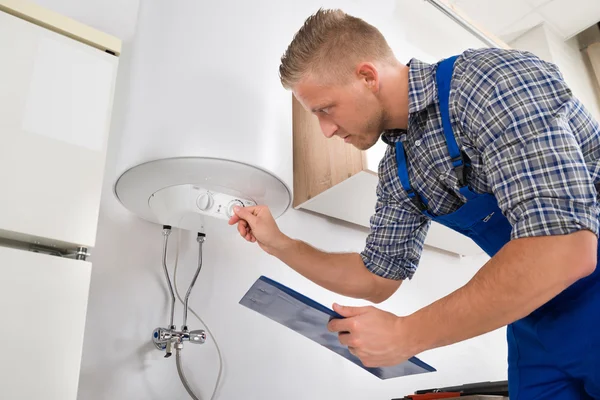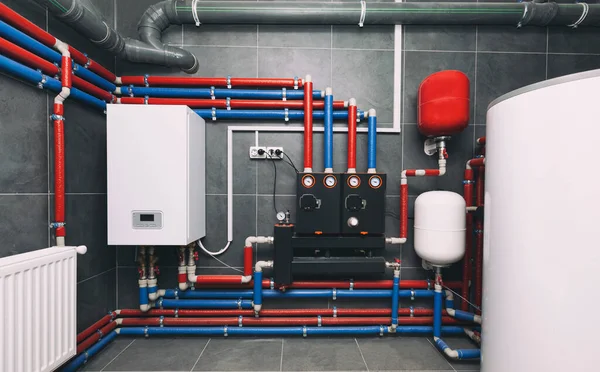The Right Choice For Your Home: Boiler Installation And Maintenance Tips
In the quest for a warm and comfortable home, choosing the right boiler is a critical decision. The right boiler ensures efficient heating, reliable hot water supply, and long-term energy savings. With various types of boilers and numerous factors to consider, this guide will help you navigate through the selection process, offering essential installation and maintenance tips to keep your system running smoothly and efficiently.
Understanding Different Types of Boilers
Combi Boilers
Combi boilers, short for combination boilers, are compact units that provide both heating and hot water without the need for a separate water tank. Ideal for smaller homes with limited space, they offer hot water on demand, making them highly efficient. Combi boilers are known for their convenience and energy efficiency, as they heat water directly from the mains, eliminating the need for a storage tank and reducing heat loss. Their compact size and ability to deliver hot water instantly make them a popular choice for modern households.
System Boilers
System boilers, also known as sealed system boilers, utilize a hot water cylinder to store hot water, making them suitable for homes with higher hot water demands. Unlike conventional boilers, they don't require a cold water tank, saving space. System boilers are favored for their ability to provide a constant supply of hot water to multiple outlets simultaneously, ensuring consistent comfort for larger households. With efficient heating capabilities and simplified installation, they offer convenience and reliability.

Factors to Consider When Choosing a Boiler
- Size of Your Home: The size of your home significantly impacts the type and size of the boiler you need. Larger homes with multiple bathrooms will benefit from a system or conventional boiler, while smaller homes may find a combi boiler sufficient.
- Hot Water Demand: Consider the number of occupants and bathrooms in your home. High hot water demand necessitates a system or conventional boiler, which can handle multiple outlets running simultaneously without a drop in pressure.
- Fuel Type: Boilers can run on various fuels, including natural gas, oil, LPG, and electricity. Natural gas boilers are the most common and cost-effective, but if your home is not connected to the gas grid, oil or LPG may be better options. Electric boilers are efficient but can be more expensive to run.
- Efficiency Ratings: High-efficiency boilers reduce energy consumption and lower utility bills. Look for boilers with an A-rating or higher on the ErP (Energy-related Products) rating system. Modern condensing boilers are typically more efficient, recovering more heat from the exhaust gases.
- Budget: Boilers come in a range of prices, from budget models to premium units. While initial cost is an important factor, consider the long-term savings from energy efficiency and reduced maintenance costs when evaluating your budget.
Boiler Installation Tips
Hire a Professional
Hiring a professional for boiler installation is essential to ensure safety, efficiency, and compliance with regulations. Qualified technicians possess the expertise to assess your home's heating needs accurately and recommend the most suitable boiler type and size. Professional installation minimizes the risk of errors or malfunctions that could compromise performance or safety. Additionally, many manufacturers require professional installation to maintain warranty coverage, providing added peace of mind.

Location
Choosing the right location for your boiler is crucial for optimal performance and safety. It should be placed in a well-ventilated area with easy access for maintenance. For combi boilers, installation in a kitchen or utility room is common, while system and conventional boilers may require a separate airing cupboard or loft space. Ensure the location complies with safety regulations and allows proper ventilation and flue positioning to expel exhaust gases safely.
Proper Ventilation and Flue Positioning
Proper ventilation and correct flue positioning are essential for safe operation of your boiler. Adequate ventilation ensures the proper combustion of fuel and expulsion of harmful gases, such as carbon monoxide. The flue should be installed in accordance with manufacturer guidelines and local building regulations to prevent the buildup of dangerous fumes. Regular inspection and maintenance of vents and flues are necessary to ensure continued safety and efficiency of your boiler.
Boiler Maintenance Tips
- Regular Servicing: Schedule annual servicing by a qualified technician to keep your boiler running efficiently and safely. Regular servicing can prevent breakdowns, extend the lifespan of your boiler, and ensure it operates within warranty conditions.
- Bleed Radiators: If your radiators are not heating up properly, air may be trapped inside. Bleeding radiators releases this air and improves the heating efficiency. Use a radiator key to open the bleed valve and let the air escape until water starts to flow out.
- Check Pressure Levels: Monitor your boiler’s pressure gauge regularly. The pressure should typically be between 1 and 2 bars when the system is cold. If the pressure is too low, you may need to top up the system using the filling loop.
- Insulate Pipes: Insulating your boiler’s pipes, especially in unheated areas, prevents heat loss and protects against freezing in cold weather. Pipe insulation is an affordable and effective way to improve energy efficiency.
Troubleshooting Common Boiler Issues
No Heating or Hot Water:
If your boiler fails to provide heating or hot water, start by checking the thermostat settings, pilot light, and pressure gauge. Ensure the boiler is receiving power and that the gas supply is sufficient. If the pressure is low, use the filling loop to top it up. If issues persist, it may indicate a more significant problem requiring professional attention, such as a faulty thermostat, pump, or diverter valve. Contact a qualified technician like tomlinsonenergy.com.au for diagnosis and repair to restore heating and hot water functionality promptly.
Strange Noises or Leaks:
Strange noises, such as banging, whistling, or gurgling, from your boiler can indicate air in the system, low water pressure, or a faulty pump. Additionally, any water leaks around the boiler or pipes should be addressed immediately to prevent damage and inefficiency. These issues can be signs of underlying problems, such as corrosion or loose connections, that require professional attention. Contact a qualified technician to diagnose and repair the issues to ensure your boiler operates safely and efficiently.

